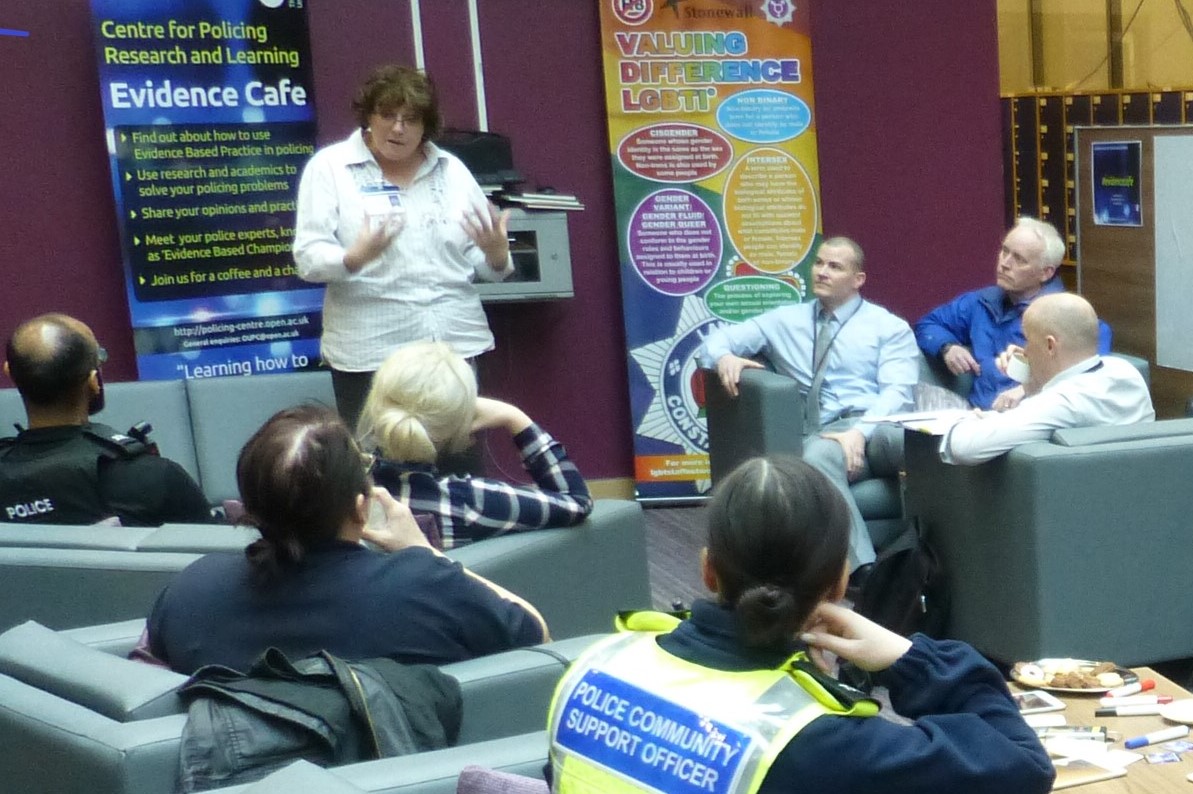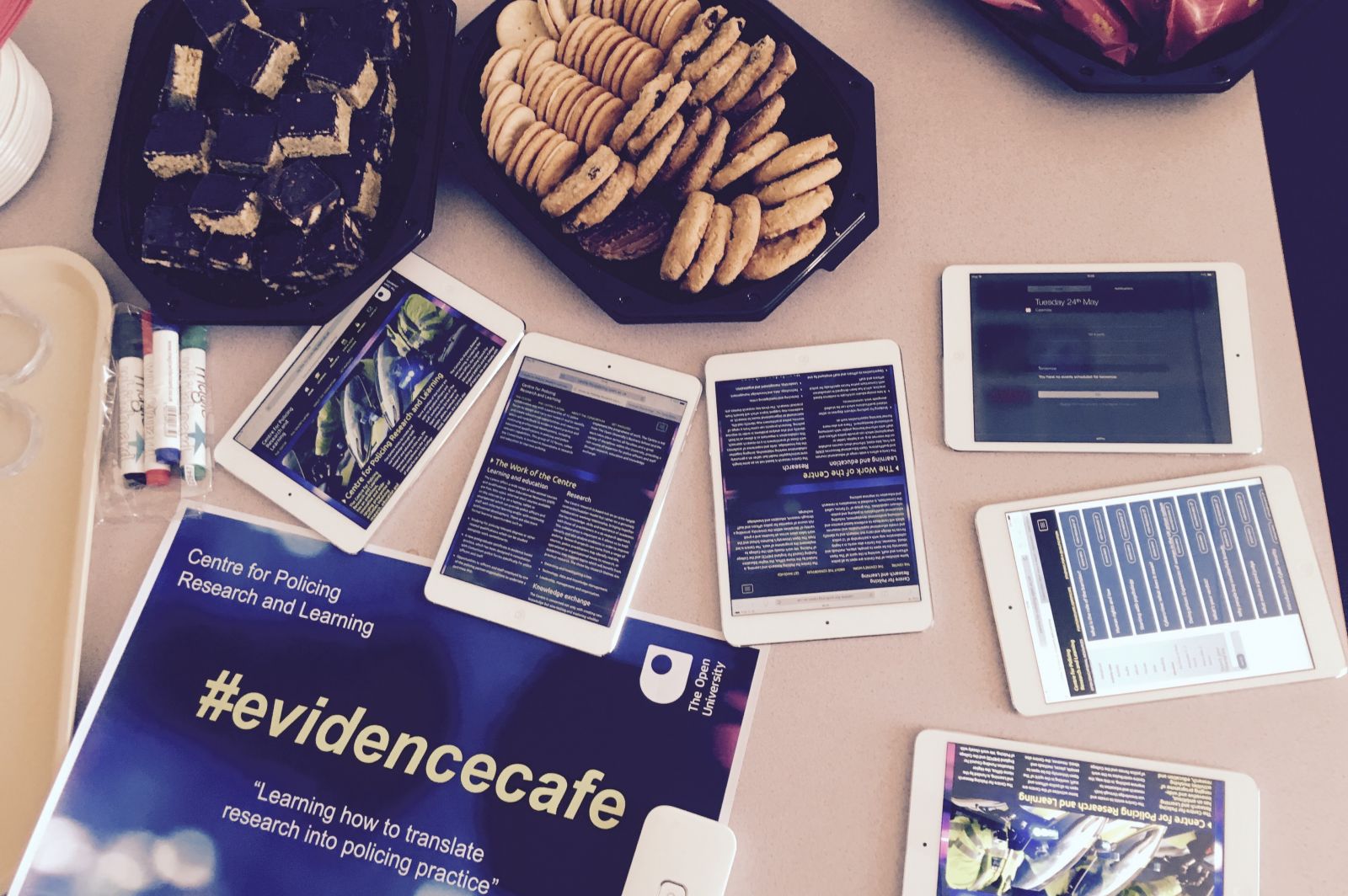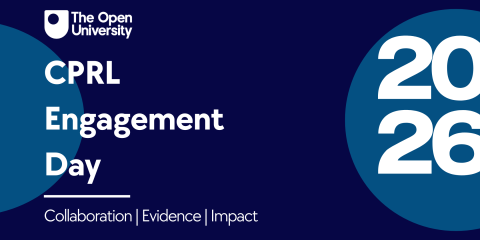Knowledge into practice

The Centre’s range of innovative knowledge exchange activities are designed to maximise learning between members of the police, between police organisations, and between the police and academics. Activities include:
- Evidence cafés designed as informal opportunities for front-line police to explore how research evidence in particular fields might help their work and what might be some of the barriers or problems in using it in practice.
- Peer learning visits that enable police to learn from best and promising practices across the private, public and voluntary sectors and crucially to bring that learning home and to adapt it to local circumstances.
- Regular conferences and workshops, often with visiting international scholars, help keep knowledge up to date.
- Secondment of police officers and staff as Senior Practitioner Fellowships enables police to work in research teams to both contribute to the research and reinforce its use back in their police force.
One way to encourage evidence-based practice is to read reports, executive summaries and academic papers, which are available in the Publications library. Another way is to complete free learning courses, read texts, videos and podcasts, which are available on OpenLearn.

Evidence Cafés
Evidence Cafés are characterised by the ‘knowledge exchange’ (not presentation!) between academics and frontline police officers. They may be facilitated by an Evidence-Based Champion from the host force.

Peer Learning Visits
Peer learning visits involve visits by representatives of police forces to areas of interest and promising practice either within police forces or other public, private or third sector organisations with lessons to offer police and public services generally.

Evidence-Based Champions and PoliceMentor
Evidence-Based Champions (EBCs) are individuals at any level of the organisation who initiate, facilitate and implement change. The Centre suggests there are four levels of EBC: Individual, National/Organisational, Role and Local
News
What does the next decade of evidence-based policing look like? Join us for the CPRL Engagement Day on 21 January 2026
This event provides a collaborative and welcoming environment for shared practice, reflection, and strategic direction-setting. Together, we will explore how our partnership can drive forward the next generation of research, innovation, and professional learning across UK policing.
Upcoming Events
Membership Group Meeting
Thursday, March 5, 2026 - 10:30 to 12:30
Online, Microsoft Teams
Online seminar: Technology-facilitated violence against women and girls: Emerging harms, prevention, and policing implications
Tuesday, March 10, 2026 - 13:00 to 14:30
